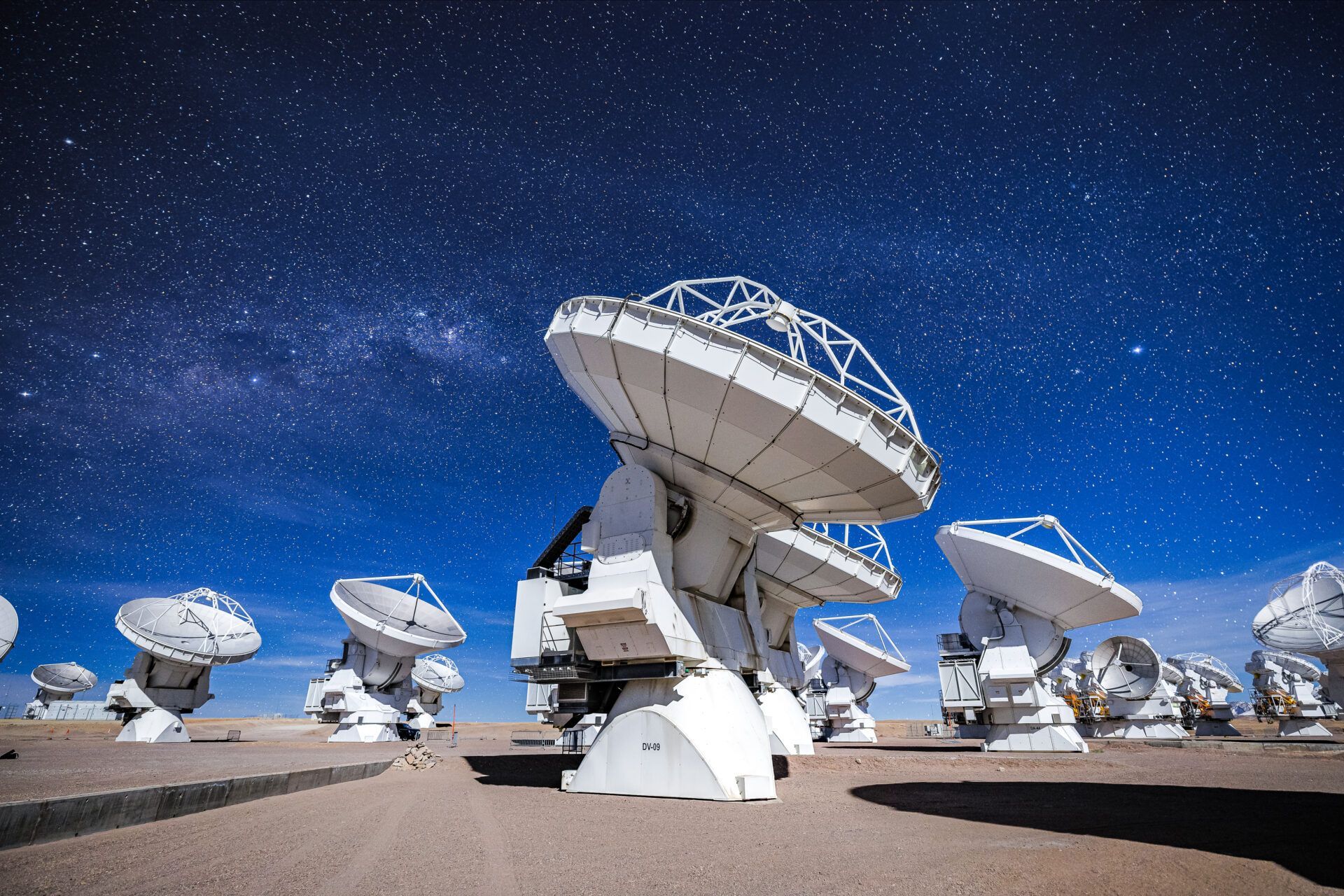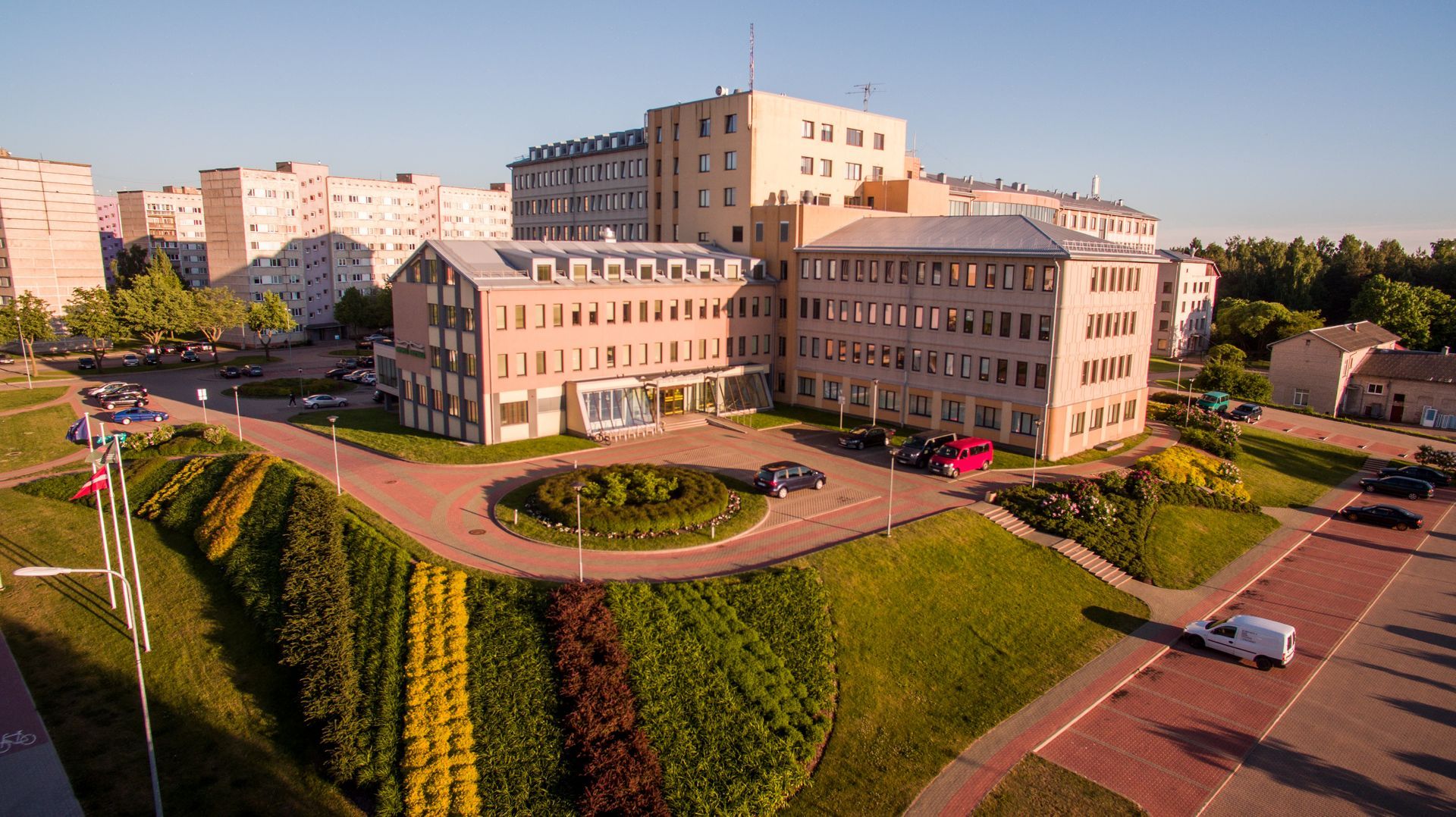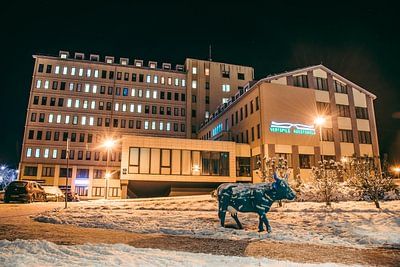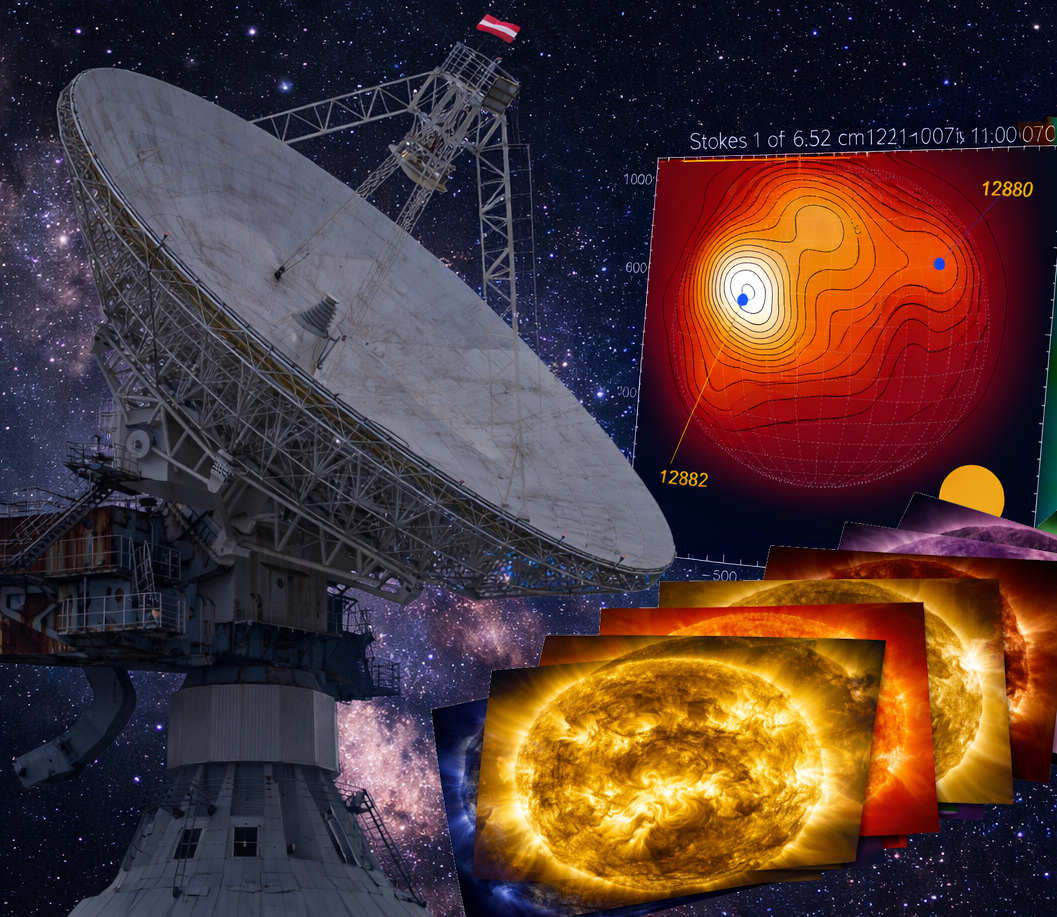The project “Evolution of Organic Matter in Regions of Star and Planet Formation (OMG)”, funded by Grant of the Latvian Council of Science, is coming to an end
The project OMG, led by A. Vasyunin, a senior visiting researcher at Ventspils University of Applied Sciences, has been running since 2018 and will end in August 2021. It examines several aspects that affect the formation of organic compounds in space. This process is also relevant for the formation of life on Earth. Both astronomical observations and theoretical research (chemical modelling calculations) are being carried out to increase insight into the project’s topic in global science.
Chemical reactions on the surface of solid particles — interstellar dust — have an important role in organic synthesis in space. To reproduce the finest scale of this process — atomic and molecular level — project participants have developed a programme that can reproduce both the formation of dust and the movement of atoms across the surface of dust, which can result in atoms interacting and forming a molecule. Due to the conditions in the interstellar medium, dust is formed amorphous, i.e. without a regular crystalline structure.
The project also investigates in detail evaporation processes that occur when icy dust particles warm up in the interstellar medium. Ice that covers them in cold nebulae is composed of volatile substances, for example, nitrogen, carbon oxides etc., which evaporate sequentially, exposing deeper and deeper layers of ice while also affecting the composition of the gas phase.
Another type of chemical modelling — studies of the synthesis of organic compounds in the medium around massive star-forming regions — was started only in the second half of the project. In this theoretical work, a less detailed model is used, but it is able to reproduce various processes — reactions in the gaseous state and on the surface of dust, and the interaction of atoms and molecules with radiation moving through space. Such simulations reproduce the chemical evolution of cosmic star-forming nebulae over thousands and millions of years. The project investigates how the formed organic matter from the surface of dust reaches the gas phase, where it can be observed with radio telescopes from Earth. This modelling work is directly complemented by observations of methanol and other compound masers using Irbene radio telescopes. Organic matter masers (enhanced radio spectral line radiation transmitted by molecules) occur around young massive stars, and complementing their observations with astrochemical modelling will provide additional information about observed objects. The results of observations of masers have already been published in the scientific literature, and results indicate a high gas density in the regions around young massive stars.
Research continues with observational and modelling work on phosphorus, one of the most important chemical elements for life. In collaboration with German and Italian astronomers, observations of distant star-forming regions and much closer comets in the Solar System have been made. These data are complemented by astrochemical computer modelling. In deep space, phosphorus is most often found in compounds with carbon, while, in comets, there is mostly the diatomic molecule PO. Therefore, compounds with oxygen are most likely the form in which phosphorus, at the beginning of the Solar System, arrived in large quantities on the newly formed Earth, where it now serves as an essential component of DNA and other biomolecules.
Planets form and acquire their initial set of organic compounds in regions much closer to a newly formed protostar — in the protoplanetary disk. This issue was addressed in the project by modelling the distribution of organic matter in the protoplanetary disk in two dimensions.
There is little work left to be done on the project. One of the tasks is to obtain data on the evolution of physical conditions in star-forming nebula. The density, temperature and radiation level of the nebula determine the main chemical processes that affect the opportunities for organic synthesis. In addition, in cold environments, a layer of ice, in which molecules transform much slower than in the gaseous state, freezes on the dust particles. Therefore, not only the conditions at a given time are important but also the history of the nebula’s physical development. To study the influence of this aspect on the concentration of organic compounds in dark nebulae, astrochemical modelling is being carried out.
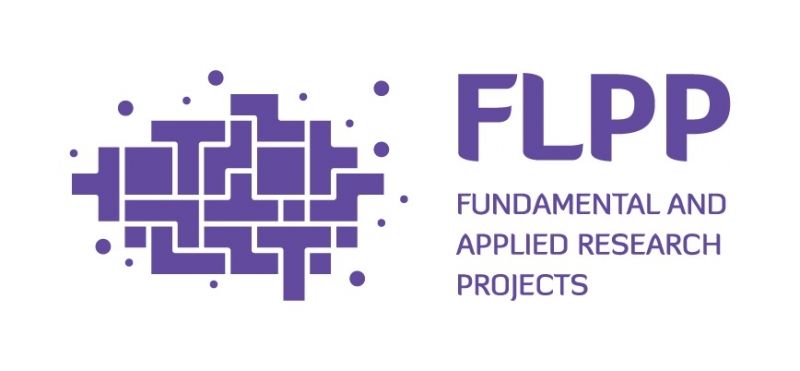
The research is being implemented within the Latvian Council of Science Fundamental and Applied Research Project No. lzp-2018/1-0170 “Evolution of Organic Matter in Regions of Star and Planet Formation” (OMG) and lasts 36 months. The total project funding is EUR 300,000.00.
Share on other platforms
Other news


